|
A friend sent these in yesterday and I just wanted to share them because I thought they were a riot--Chibi-style characters from the Indestructibles! Kate/Dancer is my favorite. Of course she's snarling.
0 Comments
I've mentioned before on this blog and elsewhere that mental health issues are very important to me. I've seen a lot of people I love struggle with mental health challenges over the years, and had some deeply personal experiences with them myself in my twenties I don't talk about nearly as often as I should.
When I heard about the Bell Let's Talk initiative taking place today, January 28th, I wanted to do something to help. I went back into my old short stores, from when I was at my lowest, and I found this short fiction piece below. Full disclosure: I wrote this for a friend I lost to depression very early in my 20's, someone I never talk about, whose name I haven't said out loud in years because there's no one in my life anymore who remembers her but me. But if we're going to talk about mental health, it's good to bring these things up, and so I'm sharing this short story, a fictional account about how I found out she was gone. Full disclosure: this short has some swearing and adult themes not present in my Indestructibles books. This isn't about superheroes; it's about two friends sharing a moment of remembrance. I still get tears in my eyes when I hear the song "Angel from Montgomery" because of the real story behind this fictional one. Every single time I hear it. Full disclosure, part 2: I didn't realize until I went back to look for this story that the characters names are Billy and Emily, and they are friends from childhood, and they have grown out of a relationship not unlike a grungier version of the one Billy Case and Entropy Emily share in the Indestructibles. While there is something eerie and strangely nostalgic about that coincidence, I've changed the names, because the characters are so very different. I miss my friend. It's something I don't say often enough, and never to anyone else. We need to know it's okay to talk to each other. It's always okay to talk. Click the Read More link below to read the short story. 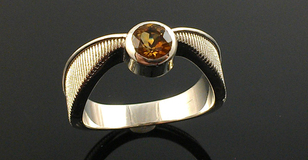 So Gawker published a bit of a clickbait-y piece earlier this week saying that if you buy or want a Harry Potter engagement ring, like the one created by this Etsy vendor, you might have made several poor life choices and probably aren't ready to get angry. Being a writer of YA books, I'm tired of my tribe getting picked on, and so I wrote a response, which got a lot of feedback over on Home For Wayward Geeks yesterday. In it I defend the right to, well, do whatever makes you happy, really. But I feel like it's become a new thing, taunting adult readers of YA and children's literature to get page views, and the entire article upset me. I did, however, link to a bunch of very cool rings, engagement and otherwise, based on Star Wars, Batman, and more. Because they're really pretty. What do you think about Harry Potter engagement rings? Are rings like this a sign of truly knowing what makes your partner happy? I did another guest post for Home for Wayward Geeks this week, this time cobbling together a list of print comics, easily available in Trade Paperback, I'd recommend for readers who are superhero fans in other media (ahem, like, for example, superhero novels) but who have not necessarily been exposed to or drawn to comics themselves.
I won't repost the entire article here, but here's a link, and a quick summary. My five recommendations were:
For more on why I picked these five, swing on by to check out the article! There are pictures. Can't write an article about comics without pictures. A couple of my best friends talked me into watching "Arrow" a few months back and, after binge-watching the first two seasons, I have to admit I really like the show (and its spinoff version of the Flash even more). But the thing that I struggle with as a Oliver Queen fan is how grim he's portrayed on the live-action show. To me, the classic Ollie is the anti-Batman--he's the millionaire superhero who actually enjoys being a superhero. So while I give props to the unexpectedly enjoyable CW show, I did come across this DC Showcase animated short and... this is the Green Arrow I grew up with. The joke about getting changed in a hybrid just nails the character. The following was originally published by Home for Wayward Geeks, a fun new pop culture/superhero/sci-fi page I work with on occasion. It's not so much a response to Brandon Sanderson's recent io9 article on why it's hard to write superheroes as it is inspired by Sanderson's post--he got me thinking about the challenges that are inherent beyond the costumes and fight scenes that make superhero literature a fun challenge to work on.
On writing superheroes: A response An essay by the fantastic Brandon Sanderson has been making the rounds thanks to io9 in which Sanderson “Explains Why Superheroes Are So Hard to Get Right.” Sanderson’s right—superheroes are a lot harder to write in prose form than you might expect. But reading his well-intentioned piece, I found myself wishing he’d dug just a bit deeper into the much more complex reasons why it’s so hard to get superheroes right (and this goes not just for prose writing, but even in their native medium or on screen). The two focus areas Sanderson targets in his essay are costumes and fight scenes. He’s not wrong, of course. Costumes and fight scenes are a core part of the superhero genre and both run a real risk of turning into self-parody or even, in the case of superhero combat, committing the cardinal sin of becoming boring if done wrong. (As a superhero writer, every time I’ve read a review saying that my own fight scenes are well choreographed, I breathe a sigh of relief rather than let out a whoop of victory. Fight scenes are hard!) I wanted to peel a layer back to the analysis, though. Are these two stereotypical pieces of the superhero genre really the hardest part to get right? Or is the real challenge finding a way to take a genre that is often treated as just spandex and fight scenes and make sure you’re telling a story that rings real and true, with characters who also ring real and true? I think the biggest obstacle to writing superheroes is giving yourself permission to forget you're writing about superheroes. It's all storytelling in the end. Writing for superheroes has all the inherent difficulties as writing for romance novels or horror or adult contemporary literature. How do I tell a good story? How do I give my readers something to fall in love with? If there’s spandex and capes, let there be spandex and capes. If there are fight scenes, let there be fight scenes. But they do not define the genre. The genre is so much more complex than that. But to Sanderson’s point, superhero writers face the additional uphill battle of working their way through all those core storytelling challenges while still (even in this day and age where Nolanverse Batman and the Marvel Cinematic Universe are taken so seriously and so beloved by the mainstream viewer) being downplayed as a lesser type of storytelling because of… well, costumes and fisticuffs. Other genres face similar stereotyping. A certain world-renown literary god once said she didn’t write science fiction because she had no flying space squids in her clearly speculative, futuristic stories, despite the fact that she’d written what could be considered some of the most groundbreaking science fiction of her generation. There will always be those who think fantasy is the home of elves and dwarves and dragons when those same readers might find themselves captivated by the rough and tumble realism of Joe Abercrombie. Romance and mystery and all other genres are frequently painted by unfair brushes, though it could be argued that superhero prose, with its history in four color print comics, has it a bit worse than the others. But while the world might try to impose rules upon superhero literature, the best part about writing superheroes is there are no rules. Where else is it perfectly acceptable for a solar powered alien, a demigoddess with a magic lasso, and a detective with a thing for flying rodents to not only coexist but be central figures to compelling, fun, and even beautiful storytelling? And the books that do best in every genre are the ones that kind of forget they're in a genre. It’s also worth mentioning that superheroes are hard to get right because superhero readers have a really sharp BS meter. They know when they're being pandered to, so it’s almost impossible to fake it—it’s a tight-knit tribe who check your credentials at the door. It’s easy to make fun of obsessive arguments over Superman’s lack of red underwear in his latest costume design or whether or not it’s important that the enormously tall and handsome Hugh Jackman has been playing the short and ugly Wolverine for more than a decade, but those arguments happen not out of spite but out of love. Superhero readers care. A lot. And they expect their writers to care too. Superhero readers have the biggest hearts in the world. We argue because these works of fiction are important to us. And that, to me, is the hardest part about writing superheroes, and why it is so hard to get superheroes right. You are, as a superhero writer, not only writing something new. You are becoming part of a community, you are adding to the verbal tradition of storytelling that has taken the place of mythology in our modern world, and you are becoming one of the caretakers of a form of storytelling that is incredibly important to a huge, loyal, and fiercely protective audience. I'm not saying Sanderson is wrong at all. Those components he talks about are unique to the genre, and very, very important. But they are also the fun part. And I’d argue that they aren’t the reason it’s hard to get superheroes right—it’s making sure to remember that superhero stories are so much more than costumes and fight scenes that poses the real challenge. Matthew Phillion is the author of the Indestructibles Young Adult superhero novel series. Book 2, Breakout, is now available. The third book in the series is scheduled for release in 2015. |
AuthorMatthew Phillion is the writer of "The Indestructibles," part-time actor, occasional filmmaker. Currently on the lam in Salem with his trusty dog, Watson. Archives
September 2019
Categories |
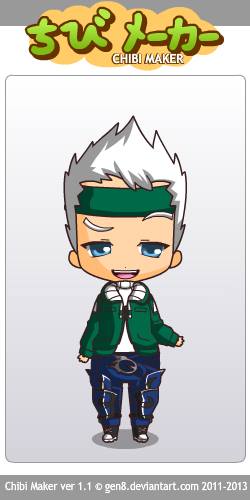
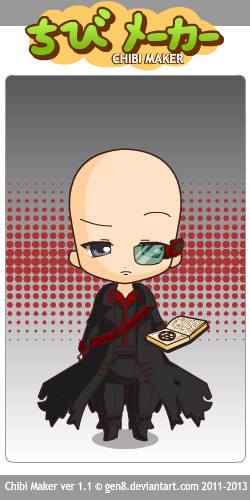
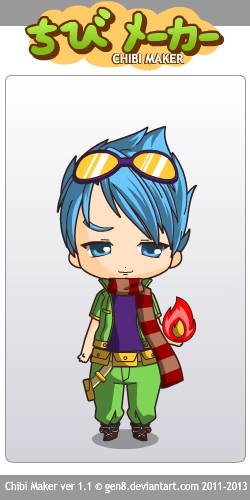
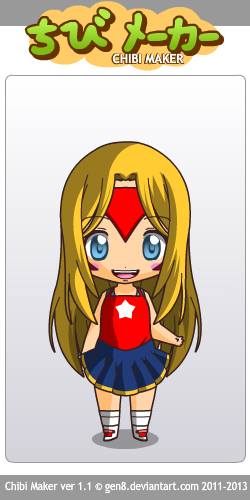
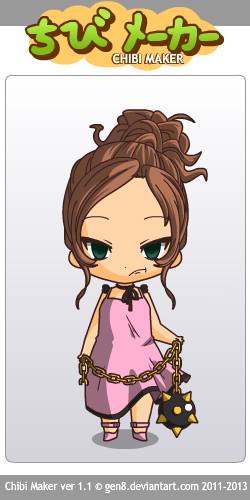

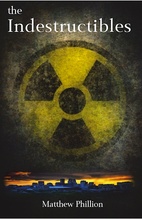
 RSS Feed
RSS Feed